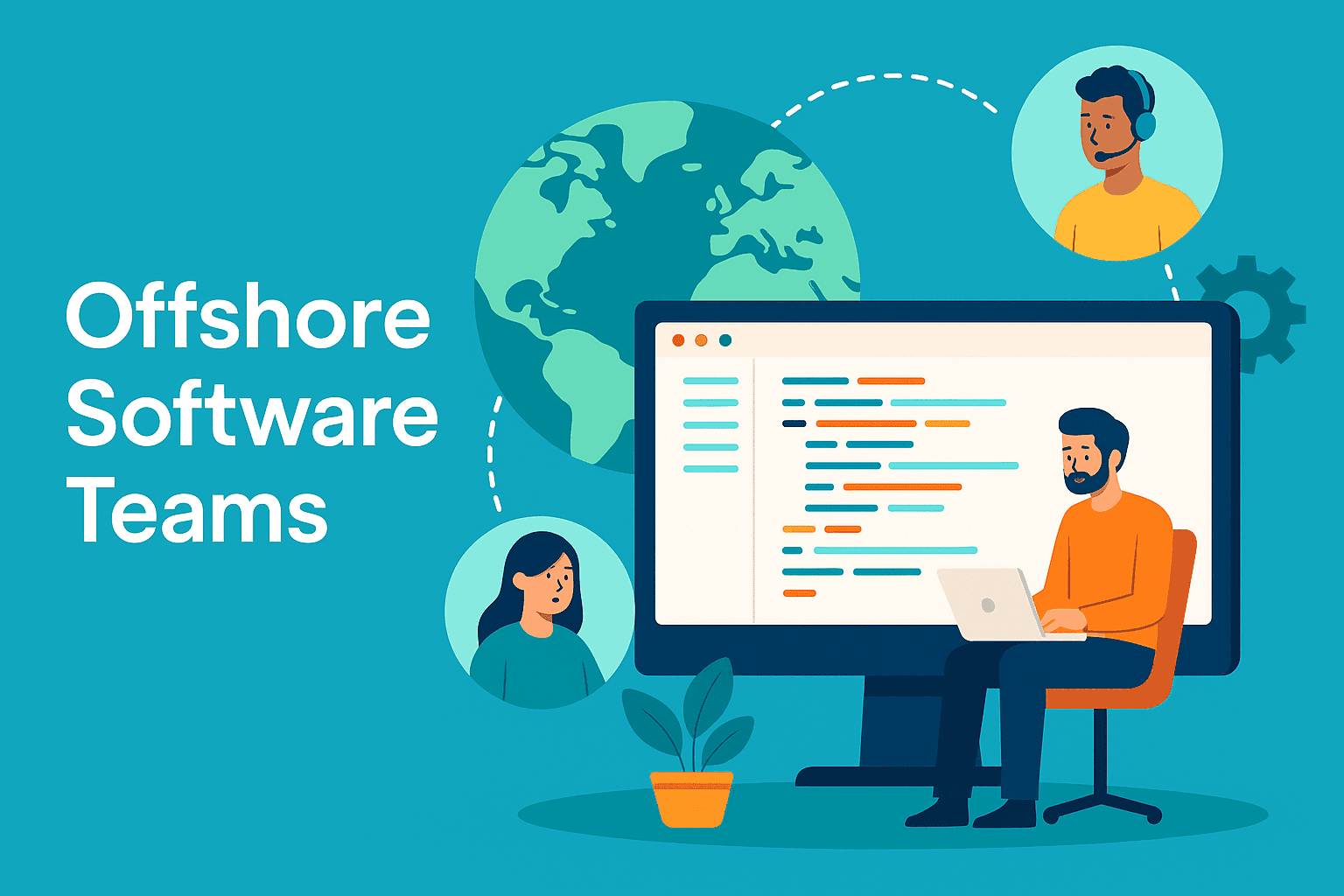Offshore Software Teams: A Smart Solution for Scaling Fast in 2025

Introduction
In the fast-paced world of product development, startups and enterprises alike are under pressure to deliver faster, innovate continuously, and manage costs efficiently. One of the most effective ways to achieve this is by leveraging offshore software teams.
In 2025, as global collaboration becomes more seamless and digital infrastructure continues to improve, offshore development is no longer just a cost-saving tactic—it’s a strategic advantage.
What Are Offshore Software Teams?
Offshore software teams are development teams located in a different country than the client, often in regions known for technical talent and lower labor costs. These teams work as an extension of your in-house team, helping you build, maintain, or scale software applications.
Why Offshore Development Is Growing in 2025
The offshore model is gaining momentum for several reasons:
- Access to global talent without geographical constraints
- Rising development costs in major tech hubs like the US and Europe
- Maturity of remote collaboration tools
- Demand for round-the-clock productivity across time zones
More companies are embracing offshore development to scale fast without sacrificing quality or control.
Key Benefits of Offshore Software Teams
1. Cost Efficiency
Hiring offshore developers significantly reduces expenses associated with salaries, infrastructure, and benefits. This allows startups and mid-sized companies to allocate their budget toward innovation, marketing, and scaling.
2. Faster Time-to-Market
Offshore teams can speed up product development through:
- Parallel workflows
- 24/7 development cycles across time zones
- Pre-built teams with proven expertise
This enables companies to launch MVPs, new features, or full-scale platforms much faster.
3. Flexibility and Scalability
Offshore development offers greater flexibility in adjusting team size based on project needs. You can easily scale up during high-demand periods or scale down during maintenance phases—without long-term commitments.
4. Access to Specialized Skills
Hiring offshore gives you access to engineers with deep expertise in specific technologies like MERN stack, AI, DevOps, and cloud architecture—without the high cost of local specialists.
5. Focus on Core Business
With a reliable offshore partner handling technical execution, internal teams can focus on strategy, customer experience, and business growth.
Offshore vs. Outsourcing: What’s the Difference?
While often used interchangeably, offshore development and outsourcing are not the same.
- Offshore Development Teams act as an extension of your in-house team. They’re aligned with your goals, processes, and roadmap.
- Outsourcing typically refers to hiring third-party vendors to deliver specific results with limited collaboration.
For long-term product development, offshore teams offer better integration, communication, and product ownership.
Common Myths About Offshore Teams
Myth: Communication will be difficult. Modern tools like Slack, Zoom, and project management systems make communication smooth and transparent.
Myth: Quality will be compromised. With the right vetting and collaboration model, offshore developers deliver high-quality code and take full ownership of outcomes.
Myth: It’s only for large companies. In fact, offshore teams are ideal for startups needing cost-effective, reliable engineering support to build early-stage products.
How Floatinity Builds Offshore Success
At Floatinity, we help businesses scale their development capacity with dedicated offshore teams tailored to their tech stack and project needs. Our model emphasizes:
- End-to-end support from onboarding to delivery
- Clean, maintainable code using modern stacks like MERN
- Integration into your daily standups, sprints, and roadmap
- A transparent and collaborative engagement approach
Whether you’re a startup building your MVP or a scaling enterprise launching a new platform, we help you move faster—with the right talent.
Final Thoughts
Offshore software teams are no longer just about saving money—they’re a smart, strategic way to scale fast, access global talent, and stay ahead of the curve. In 2025, embracing offshore development is a competitive advantage that smart businesses are already acting on.

